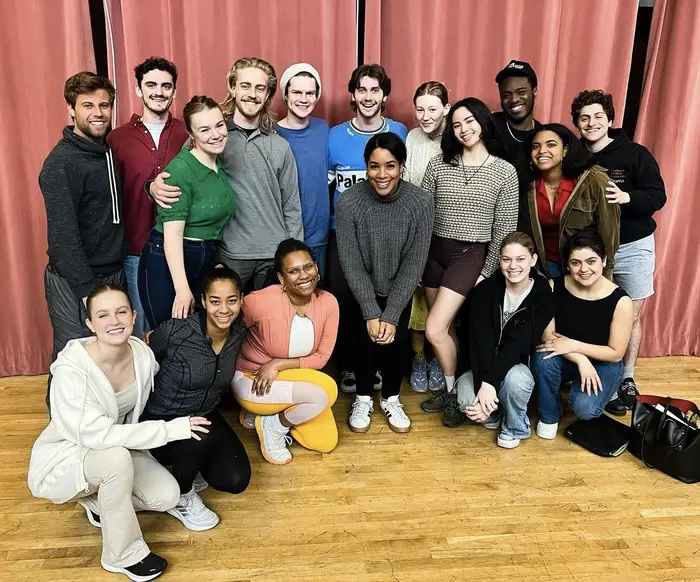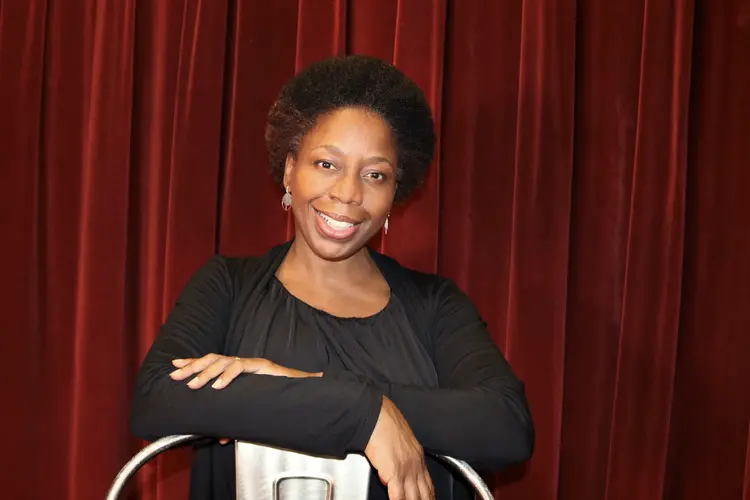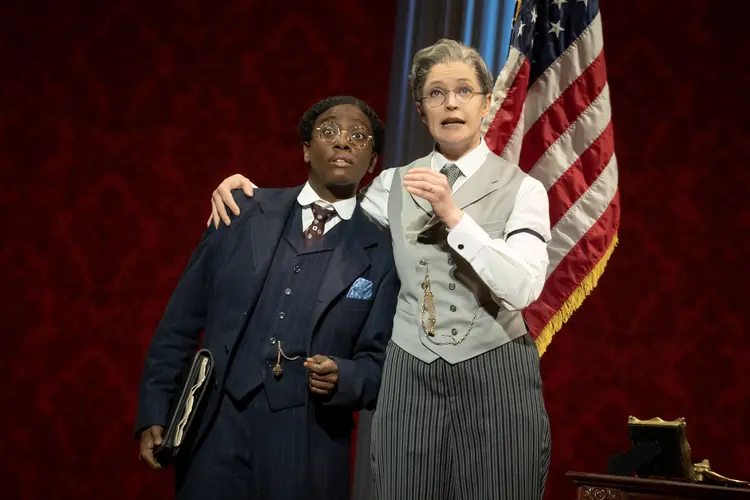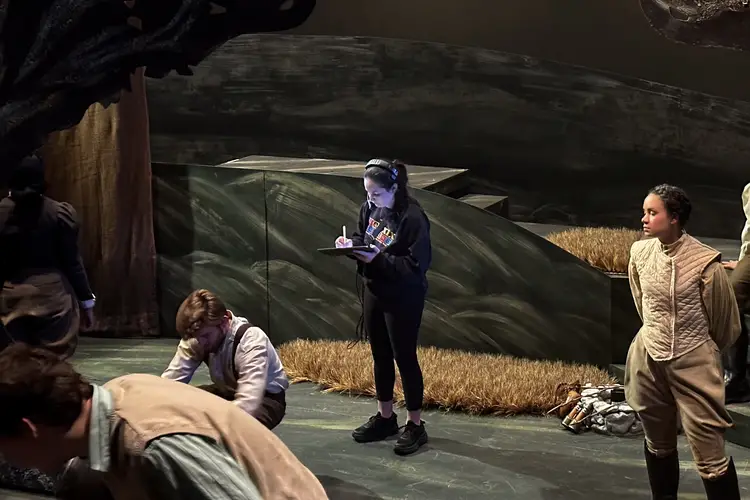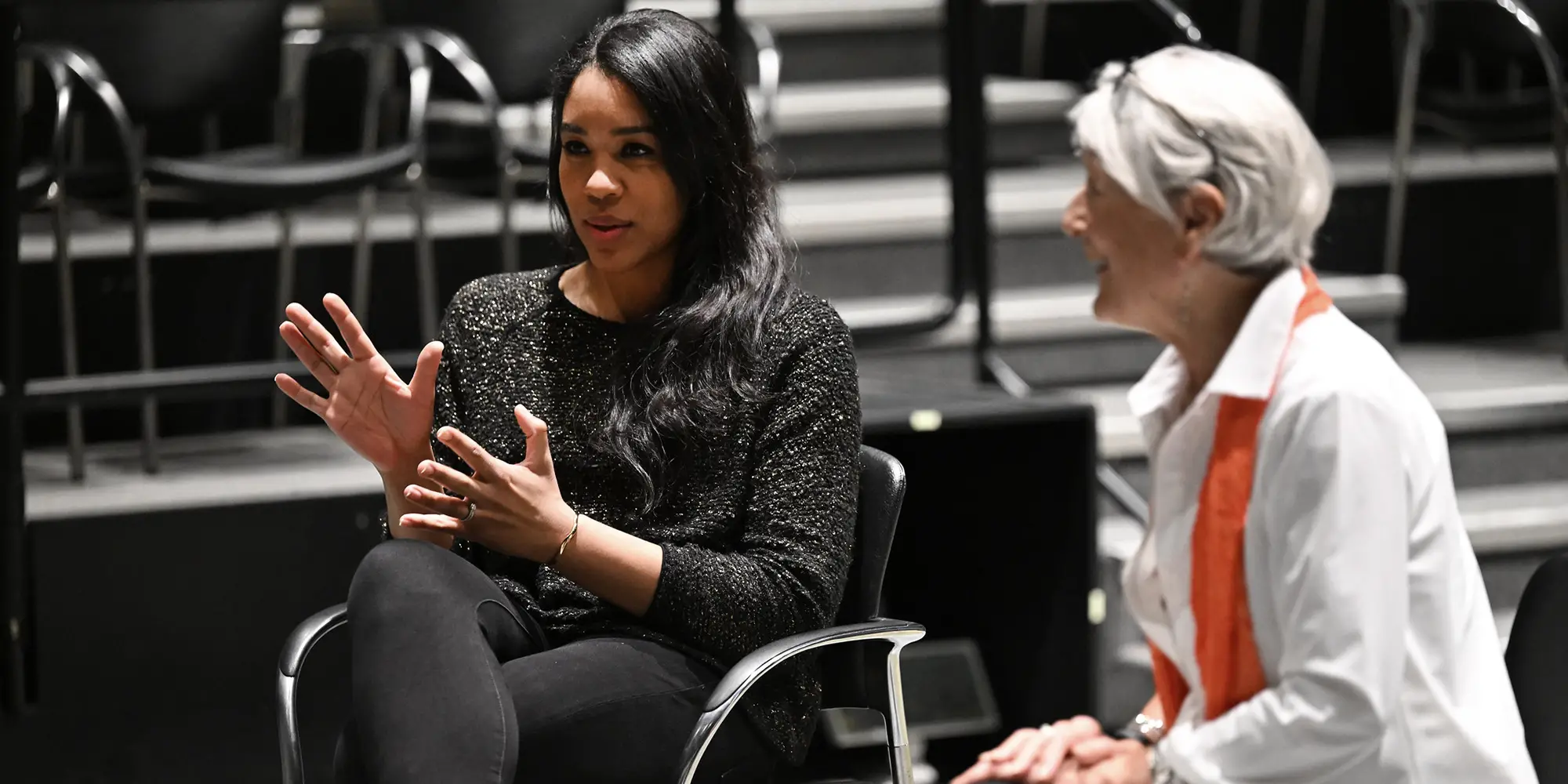
Arts Education Teaches Empathy, Values Mentorship
Media Inquiries
In the dramatic arts, training artists and actors holds as much importance as teaching tools for expression, according to Carnegie Mellon alumni with ties to Broadway.
“Arts education allowed me to see that there was not one way to be, not one way to learn, not one way to process information,” said Nate Bertone(opens in new window) (CFA 2016), a member of the Tartans on the Rise Class of 2024(opens in new window).
Bertone said that as a child, art was a “massive outlet” since he didn’t connect as well with reading or writing.
“I found that I was very expressive through imagery, and being encouraged to keep doing that helped me break through barriers,” he said. “Using my art and my art classes to understand there were other ways to comprehend and retain information wouldn't have happened if I wasn't encouraged to draw on a piece of paper and really get those images out.”
Earlier this year on Broadway, Bertone produced “How to Dance in Ohio,” a story of seven young adults with autism navigating adulthood. For his latest project, he wrote a children’s book released Sept. 17 called “Nana Nana” to help kids better understand Alzheimer’s disease and the feelings when a loved one is diagnosed with it.
“Art can heal and art can change in ways that are not just about consuming art,” Bertone said. “Using your unique talents and creating art is a powerful form of expression and communication. When words can't say what you're trying to say — art can.”
Art can also enhance anyone’s understanding of the world, especially young students, said Meg Zervoulis, who earned her degree from CMU in 2006.
“Having arts education and experiencing life through art enhances their ability to communicate, to feel their emotions and understand them,” she said.
Zervoulis most recently served as music director of “Cabaret at the Kit Kat Club” and has served as music director, arranger and orchestrator(opens in new window) for the Paper Mill Playhouse for several years.
"The arts help our students, especially now, to cope with emotions and their surroundings," she said.
Relating to others who are also connected to those same emotions, allows everyone to be more open-minded, said Jesmille Darbouze, another 2006 CMU graduate.
“Being a theater artist makes you really empathetic, and as theater artists we are encouraging empathy,” she said. “Being in the arts is also a service to others in its own unique way.”
Darbouze, who acted in “A Doll’s House” on Broadway and presented the 2024 Excellence in Theatre Education Award alongside Carnegie Mellon University President Farnam Jahanian(opens in new window), also serves as an arts educator herself, teaching acting as an assistant professor at Marymount Manhattan College.
Darbouze said the empathy and emotions expressed through the arts, when combined with a shift toward more diverse and authentic stories, can also help audience members and artists alike to feel more comfortable as their authentic selves.
“With my students, I'm seeing this celebration of really owning who you are and your identity and how you see yourself in the space, and bringing that to the work,” she said.
The impact of her arts education from Carnegie Mellon continues to inspire through her own teaching.
“I hear some of my teachers' voices right when I teach, because they had such an incredible impact on me as a young student,” Darbouze said. “So much of the training I learned at Carnegie Mellon, I still carry with me.”
Bertone agreed, explaining that the encouragement and support he received at CMU from professors leading the School of Drama(opens in new window) such as Peter Cooke(opens in new window), Dick Block(opens in new window), Anne Mundell(opens in new window) and Susan Tsu(opens in new window) continue to inform his career choices.
“While I was at Carnegie Mellon, my professors’ mentorship really pushed me in the directions that I wanted to go,” he said.
CMU’s effort through the Excellence in Theatre Education Award(opens in new window) recognizes the significance of the lasting connections created through arts education, Bertone said.
“Educators are there to create this mentorship bond,” he said. “The Excellence in Theatre Education Award is so important, and it is amazing to honor those that are building the next generation of artists.”
Submissions now open
CMU recognizes K-12 theater educators every year at The Tony Awards through the Excellence in Theatre Education Award(opens in new window).
Submissions are open now for the 2025 award(opens in new window) set to be presented at the 2025 ceremony(opens in new window) on June 8 at Radio City Music Hall.
At the 2024 ceremony, CMU alumni took home four Tony Awards(opens in new window), bringing the total to 64 overall.
